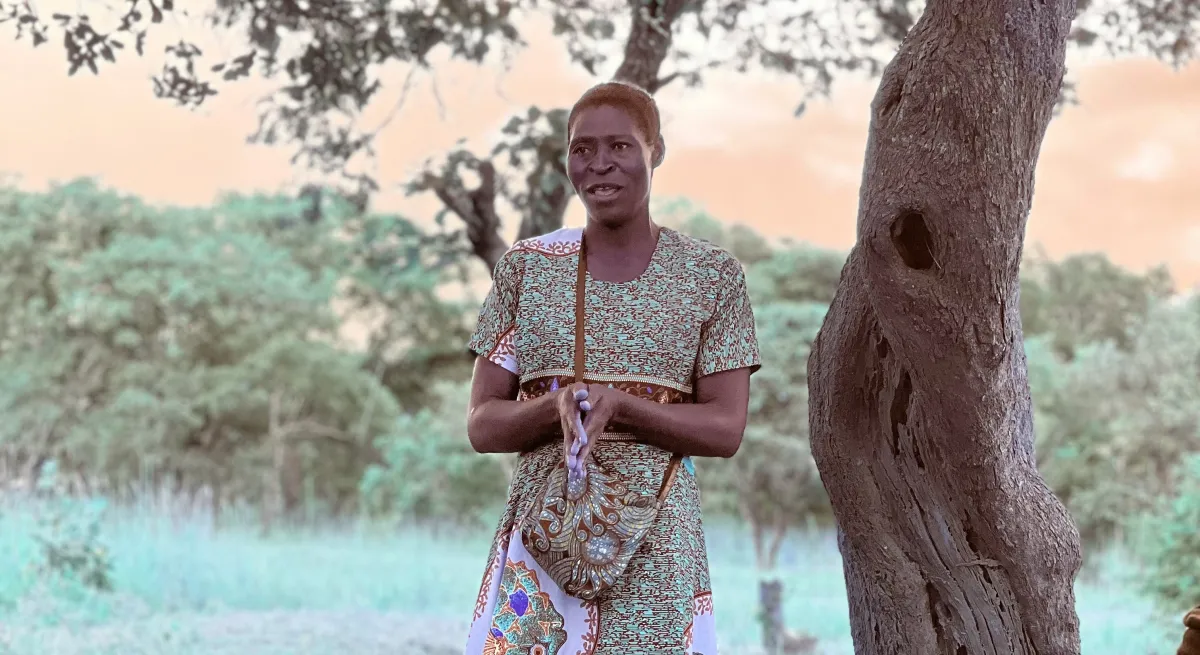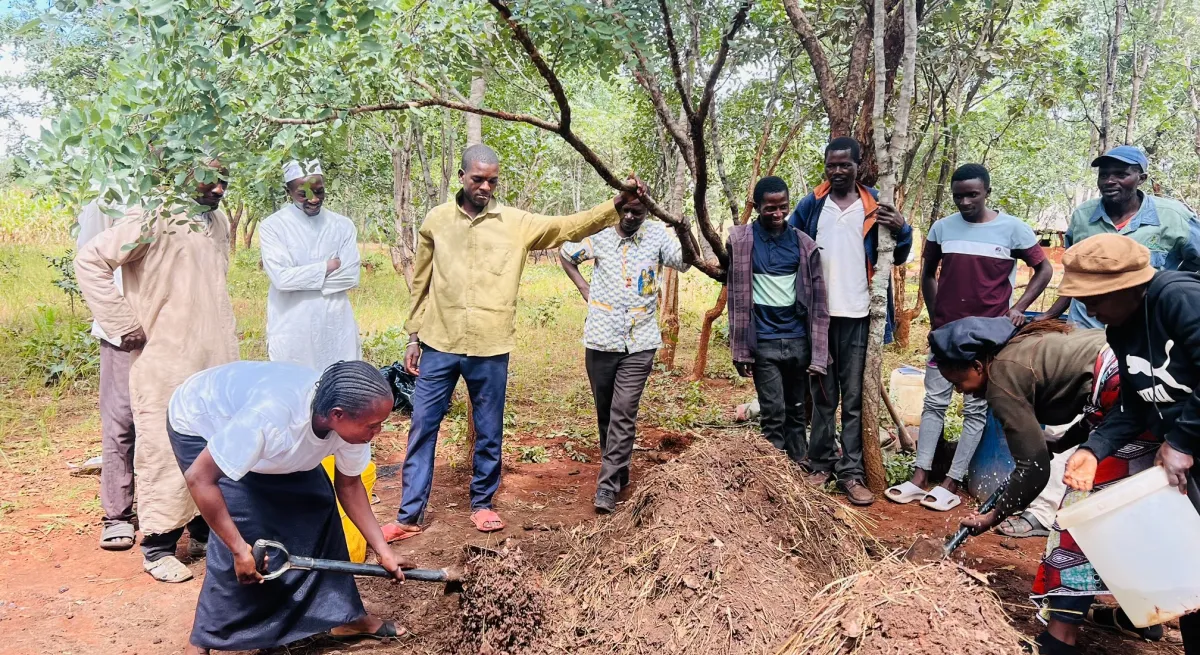Empowering youth and women farmers to become successful, climate-resilient suppliers of healthy, sustainable products for formal markets.
-14.408079835162, 27.35595703125
Small-scale farmers in Zambia are vulnerable to climate impacts and environmental harms. YEFI helps boost their resilience with restorative farming practices and market access.
The Young Emerging Farmers Initiative (YEFI) is the first organisation in Zambia focusing on transforming food systems and agriculture by prioritising the needs of young people aged 15 to 35.
In rural areas, smallholders who grow most of the country’s food are vulnerable to drought, excluded from profitable markets, and lack alternatives to harmful chemical pesticides and fertilisers.
With its NO AGROCHEM project, backed by the Julius Baer Foundation, YEFI is training young farmers in practices of agroecology that protect nature, restore degraded soils, and respond to increasing demand for high-quality sustainable food. The project’s holistic food-system approach strengthens community networks, facilitates links between producers and buyers, and fosters an enabling policy context.
Quick facts
- Zambia
- Project support: 2025-2027
- Grant amount: CHF 300,000
- Encouraging young farmers to adopt agroecological practices and connecting them with buyers, retailers and agri-entrepreneurs.
From dependency and marginalisation …
In underserved rural districts of Zambia, youth and women farmers are largely side-lined from agricultural decision-making and remain locked in ‘conventional’ production models that harm nature and fuel climate change.
… to self-determination and climate-resilience.
YEFI instructs them in input-free organic farming, composting, and other nature-based practices while connecting them
to reliable markets committed to ethical sourcing. Participants emerge as environmentally resilient agents of change.

Before, I was spending over 1,800 kwacha every season on synthetic fertilisers, and my yields were still poor. After learning how to make bokashi [fertiliser] with materials I already have, I’ve reduced my input costs to almost zero and increased my groundnut harvest from 8 to 14 bags per hectare. For the first time in 10 years, I expect to have a surplus to sell. I plan to train others in my community. I finally feel in control of my soil and income.
OUTPUT
The NO AGROCHEM project will train over 1,000 youth and women smallholder farmers in agroecology, building their capacity for climate-resilient, chemical-free farming.
OUTCOME
By 2027, farmers are expected to increase their incomes 30–50% thanks to lower production costs and improved access to organic markets that support environmental restoration and protection.
HIGHLIGHT
A new digital mobile knowledge platform equips farmers with real-time access to agroecology training, advisory, financial services and market opportunities, overcoming rural knowledge gaps.
Improving lives and ecosystems with agroecology
• Despite growing demand for organic and sustainably produced food, the smallholder farmers who produce most of Zambia’s food remain trapped in poverty due to their dependency on agrochemical inputs and exclusion from formal markets.
• YEFI trains them in agroecological farming and embed them in a multi-stakeholder ecosystem that enables them to thrive as organic food producers.
• Backed by the Julius Baer Foundation, YEFI can scale the project and is unlocking access to diverse and ethical markets, engaging a wider range of off-takers, including ethical retailers and green businesses
• The collaboration allows YEFI to expand its presence in underserved districts, previously constrained by logistical and financial barriers
• YEFI is also engaging in national policy dialogues on agroecology, ensuring that youth voices shape Zambia’s agricultural and climate resilience strategies.
• Farmers are encouraged to form producer cooperatives, allowing them to save collectively, invest in expanding their environmentally beneficial agroecological operations, and bolster their market negotiating power.


